Are you considering canceling your web hosting service? It's a common decision among website owners, whether due to budget constraints, a lack of use, or changing business needs. In this article, we'll walk you through a simple and effective cancellation letter template that ensures you cover all the necessary details while maintaining professionalism. Join us as we explore this essential task and help you navigate the process smoothly!

Account Information
When considering the cancellation of a web hosting service, it is essential to provide detailed account information for efficient processing. Your account ID (a unique identifier assigned by the hosting provider) is crucial for verification purposes. Include your registered email address, as it is commonly used for communication and account management. Mention the hosting plan type you are subscribed to, such as shared hosting, VPS, or dedicated server. Specify the domain name associated with your hosting account, which helps in pinpointing the cancellation request efficiently. Additionally, including the last billing date allows the provider to assess any potential refunds or final charges, ensuring a smooth transition away from their service.
Service Termination Date
Customers often seek clarity on service termination dates when canceling web hosting services. For instance, Bluehost clients commonly terminate services on specific planned dates to avoid billing cycles and minimize interruptions. A clear termination date (for example, set for December 15, 2023) allows businesses to prepare for potential data migration, ensuring that website data stored on servers is safely transitioned to new hosting platforms. Furthermore, understanding the process can prevent unexpected charges related to domain renewals associated with canceled hosting services, which can vary across providers. Community forums often emphasize the importance of confirming cancellation to avoid issues with your registrar.
Reason for Cancellation
When customers decide to cancel their web hosting services, various factors contribute to this decision, often including dissatisfaction with service quality, high costs, or a transition to alternative providers. Some customers face challenges such as slow loading times or unreliable uptime, impacting their website's performance (critical for user experience), which can lead to decreased traffic and revenue. Customers may also explore more competitive pricing options, especially if they find better deals in the market, given that web hosting costs can range from $2.75 to $500 per month based on the level of service required. Additionally, changes in business direction, including website redesigns or migrations to different platforms, often necessitate these cancellations. Understanding these elements helps hosting companies address issues, potentially retaining customers by improving service quality or offering better pricing structures.
Request for Confirmation
Web hosting service cancellations often require clear communication and confirmation. Customers may initiate a cancellation for various reasons such as dissatisfaction with service quality, a need for a more cost-effective solution, or a transition to a different hosting provider. A cancellation request typically includes essential details, such as the account number or domain name associated with the service, the reason for cancellation, and a request for confirmation of the cancellation request. Prompt confirmation ensures that customers have a record of their cancellation and can effectively transition to alternative hosting arrangements without incurring additional charges. Documenting this process is essential for maintaining accurate financial records and ensuring compliance with any contractual obligations.
Data Backup Instructions
Data backup is essential for preserving website content before cancellation of web hosting services. Users must identify key data types, such as HTML files, databases (like MySQL), media files (images, videos), and any associated SSL certificates for security. Recommendations include using FTP clients, such as FileZilla, for file transfer and phpMyAdmin for database exports. Cloud storage options like Google Drive or Dropbox can provide secure backup locations. It is crucial to complete backups prior to the cancellation date, as hosting providers typically delete data (often within 30 days) post-termination. Review terms of service concerning data retention policies to ensure compliance.
Letter Template For Web Hosting Service Cancellation Samples
Letter template of web hosting service cancellation due to budget constraints
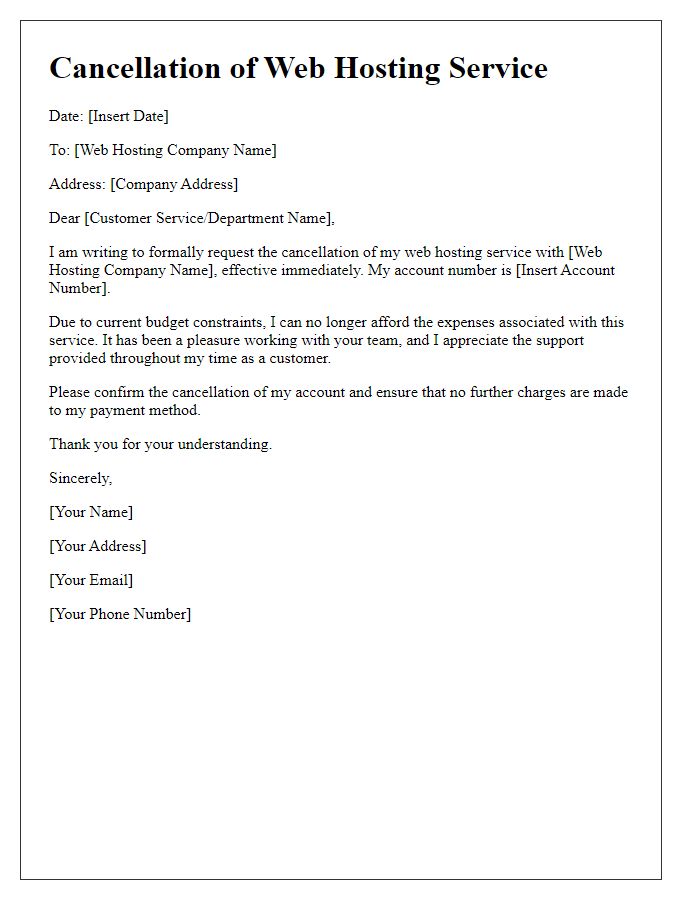
Letter template of web hosting service cancellation for service dissatisfaction

Letter template of web hosting service cancellation because of business closure
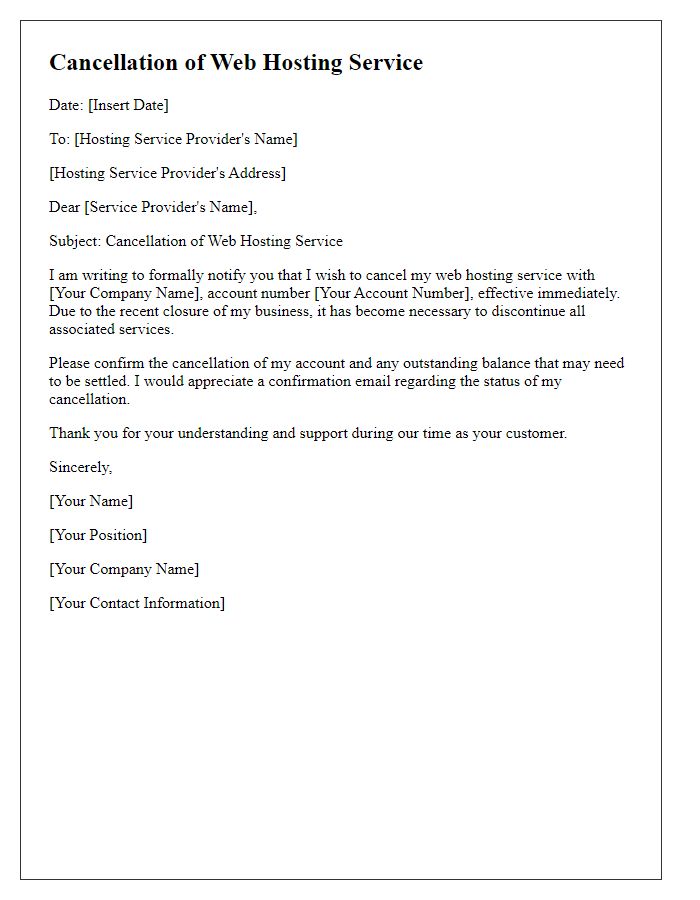
Letter template of web hosting service cancellation for migrating to another provider
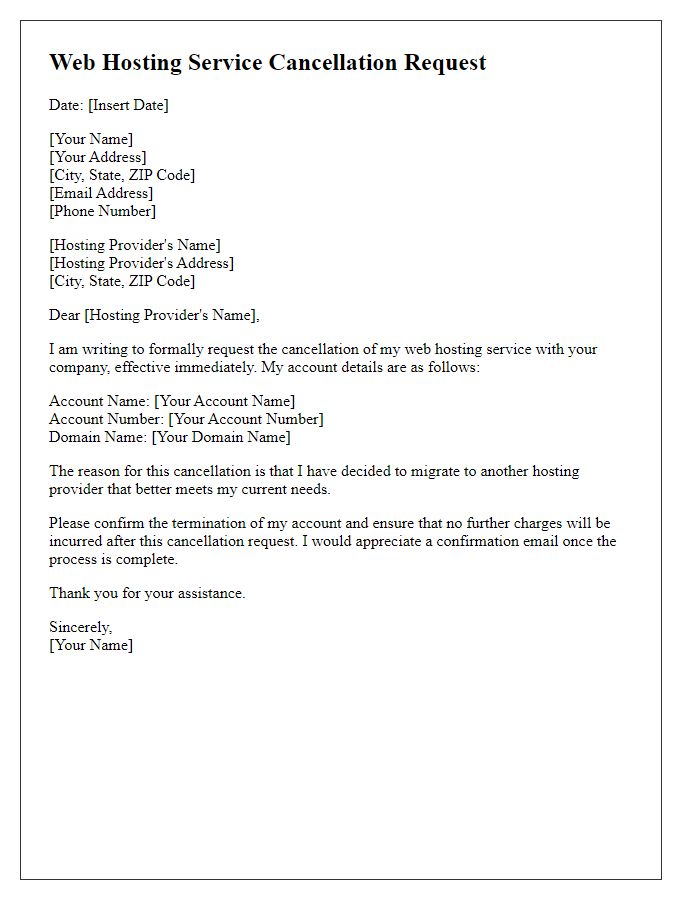
Letter template of web hosting service cancellation due to lack of technical support
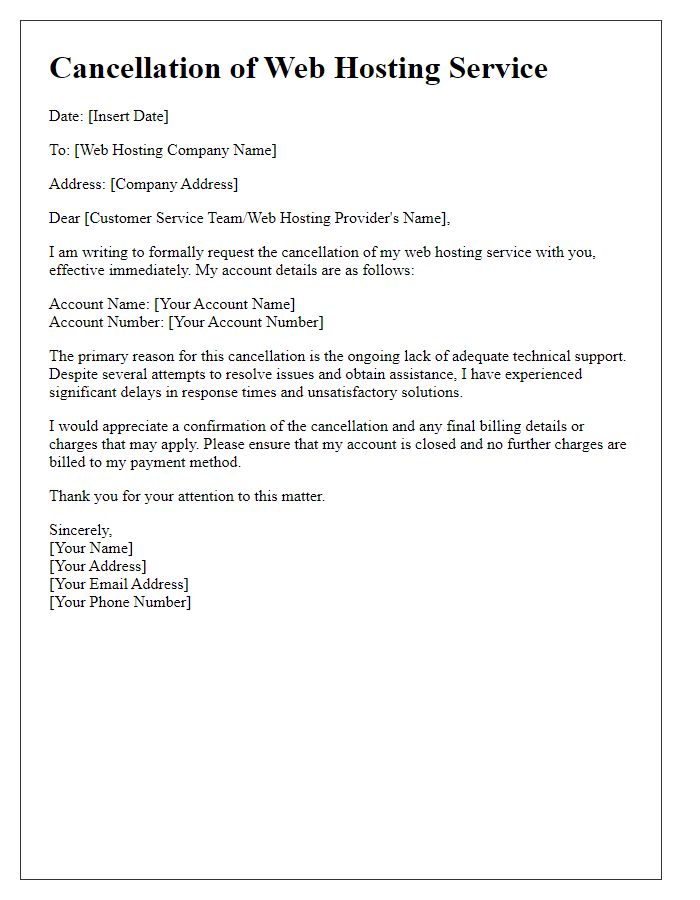
Letter template of web hosting service cancellation for redesigning website
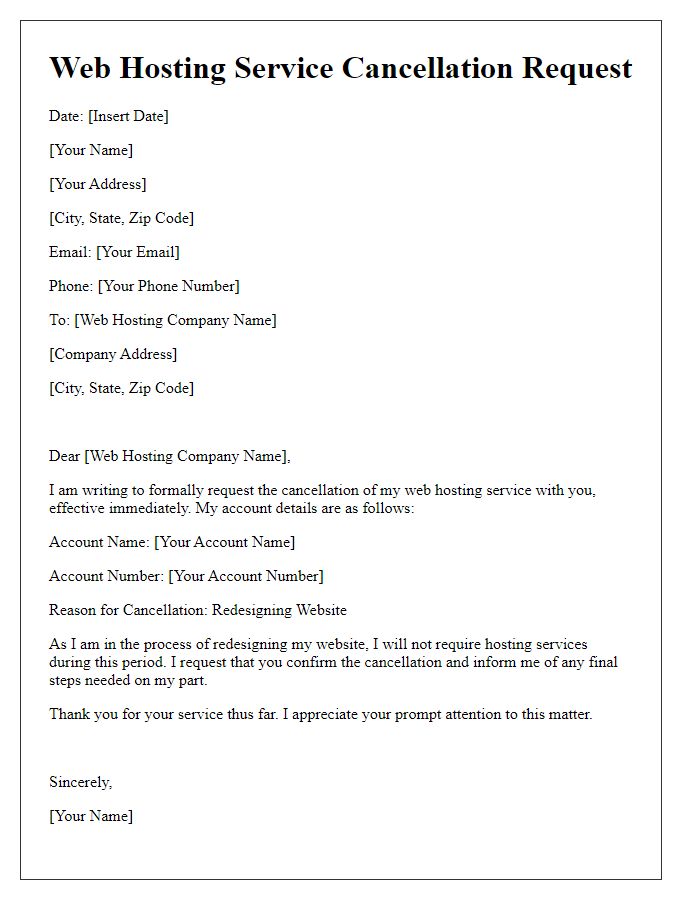
Letter template of web hosting service cancellation as part of a service review
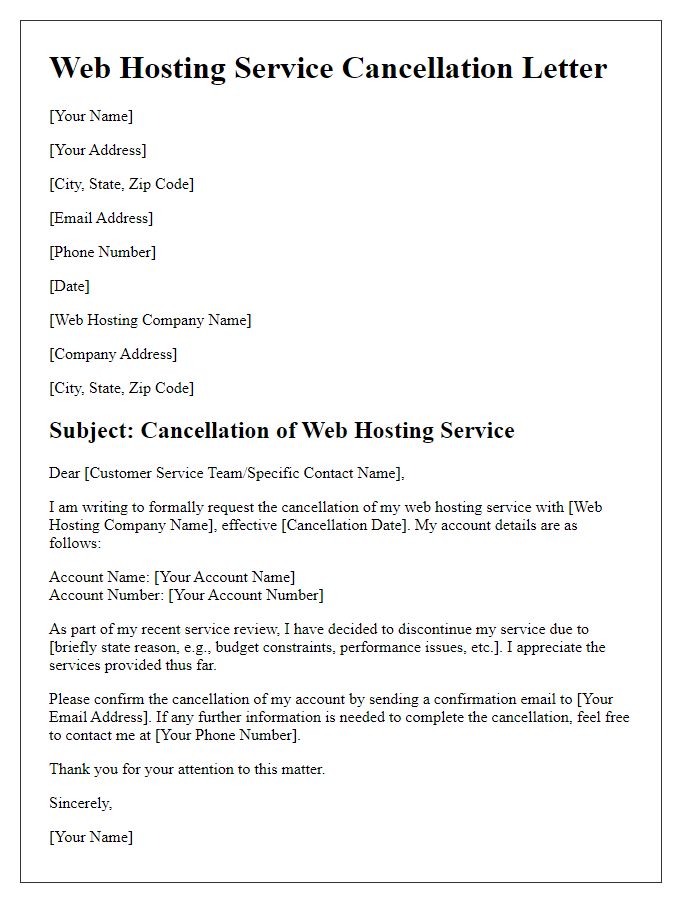
Letter template of web hosting service cancellation for performance issues
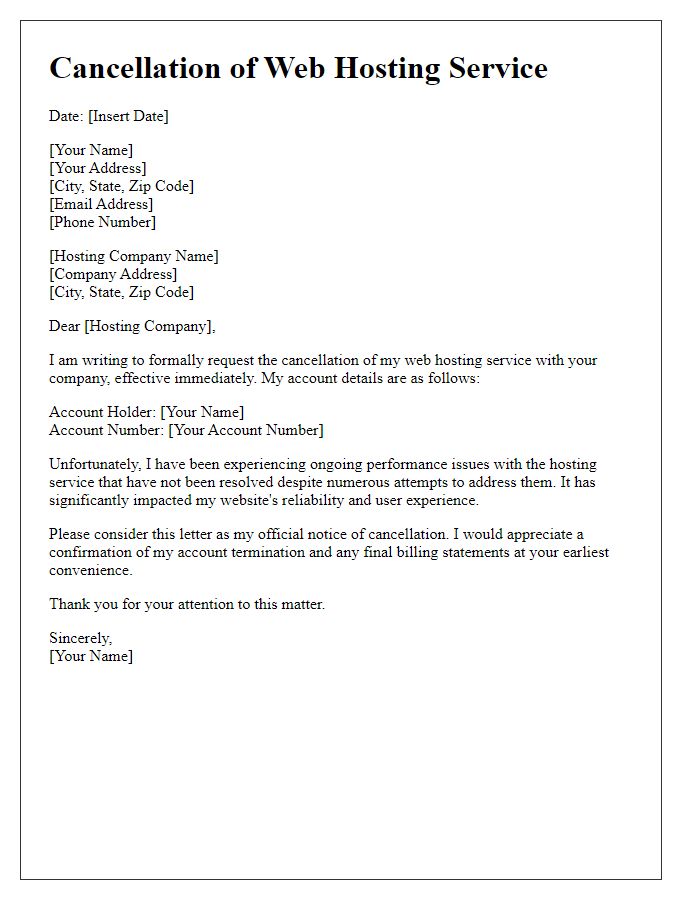
Letter template of web hosting service cancellation in response to contract expiration
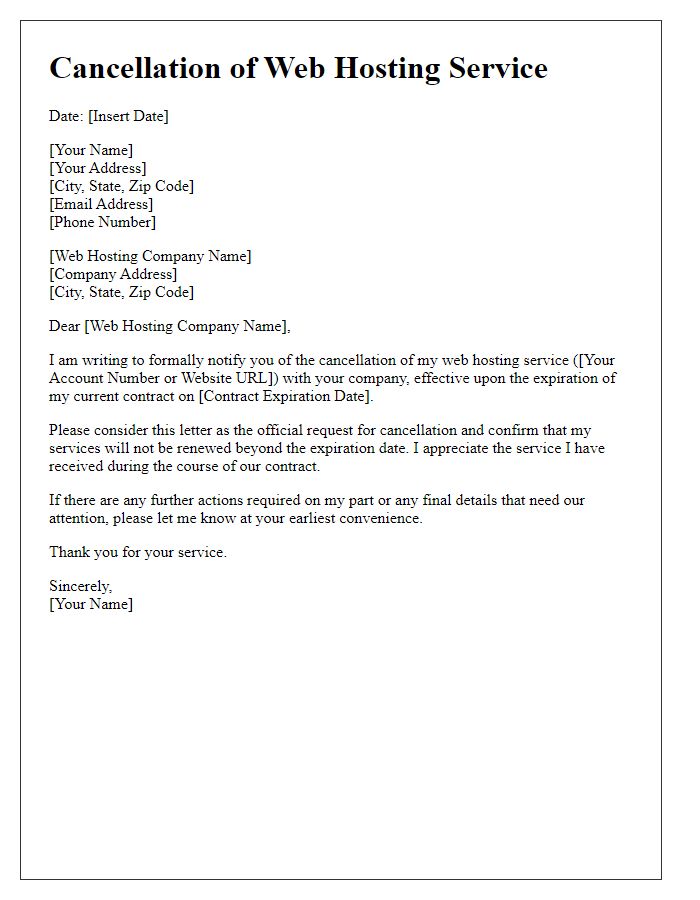

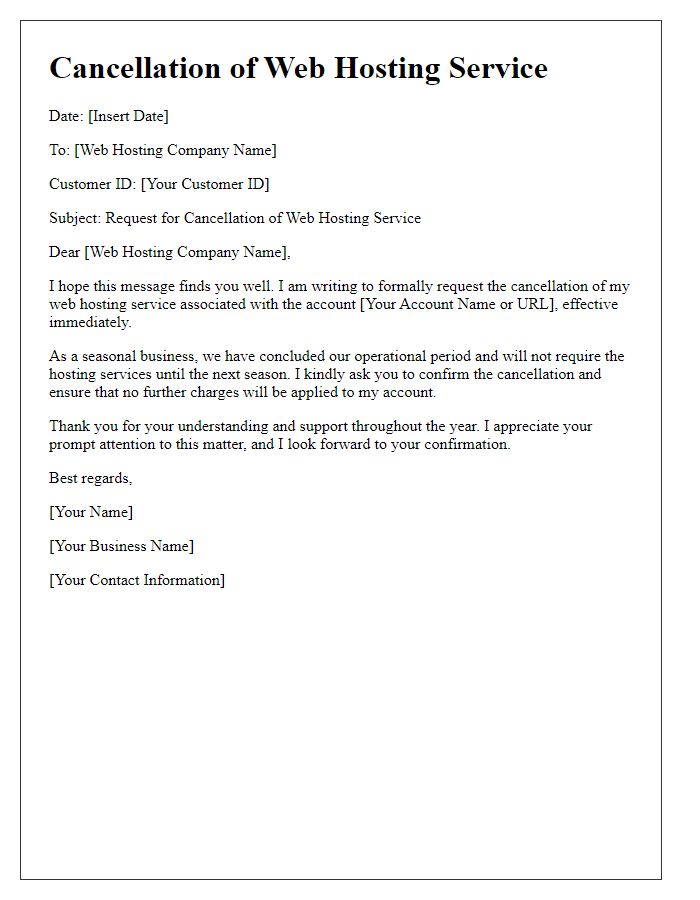


Comments